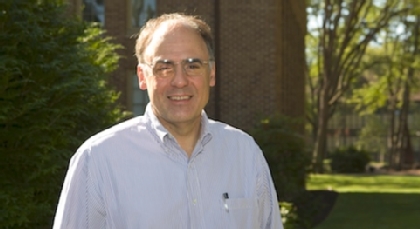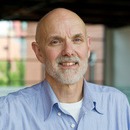Page 22 • (712 results in 0.017 seconds)
-

Starkovich named provost By Greg Brewis Steven P. Starkovich has been named provost and dean of graduate studies through the 2011-12 academic year. Provost Steven P. Starkovich He had been serving as acting provost this year during the sabbatical leave of Patricia O’Connell Killen. She…
March 22, 2010 Starkovich named provost By Greg Brewis Steven P. Starkovich has been named provost and dean of graduate studies through the 2011-12 academic year. Provost Steven P. Starkovich He had been serving as acting provost this year during the sabbatical leave of Patricia O’Connell Killen. She is returning to her alma mater to become academic vice president at Gonzaga University in Spokane. Starkovich first came to PLU in the fall of 1992 to teach one course in the physics department as
-

Professor Emeritus of Computer Science | Department of Computer Science | hausergj@plu.edu | 253-535-8731
George Hauser Professor Emeritus of Computer Science Phone: 253-535-8731 Email: hausergj@plu.edu Office Location:Morken Center for Learning & Technology Office Hours: Mon - Fri: By Appointment Professional Education Ph.D., University of Rochester, 1988 M.S., University of Oregon, 1980 B.S., Computer Science, Washington State University, 1972 B.S., Physics, Washington State University, 1971 Areas of Emphasis or Expertise Parallel Algorithms Computational Complexity Computer Communication
Office HoursMon - Fri: -Area of Emphasis/Expertise -
The University Scholars Association was founded in 1972 by Dr. Curtis Huber (philosophy), Dr. William Hutcheon (business), Charles Nelson (registrar), Dr. Richard Jungkuntz (provost), and Dr.
Our HistoryThe University Scholars Association was founded in 1972 by Dr. Curtis Huber (philosophy), Dr. William Hutcheon (business), Charles Nelson (registrar), Dr. Richard Jungkuntz (provost), and Dr. Tony Lauer (business). The association purchased a house located across the street from PLU. The homeowner they bought it from was a PLU faculty member, Cap Jacobs (physics). Newsletter 1972: Founding of University Scholars Association An early brochure to join the University Scholars
-
The Knight Campus Graduate Internship Program at the University of Oregon provides an opportunity to complete a master’s degree and a 9 month paid internship in science or engineering – in as little as 15 months. Learn More: Virtual Alumni Panel – THIS THURSDAY! Thursday, December 2nd 4-5PM Pacific / 7-8PM Eastern RSVP for Zoom info: …
Hadware Engineer, Ouster Alex Wert Manufacturing Engineer, Telephonics Jordan Crist Senior Engineering Manager, MKS Instruments Morgan Bergstrom Rotational Engineer, Gates Corporation Jennifer Buechler Engineering Manager, Medtronic Sam Roland Analytical Chemist, Nike Adam Golfman Analytics Engineer, Intel Tiphanie Pfefferle Synthetic Chemist, Cascade Chemistry Can’t make it? I’m happy to book 1:1 appointments – lynde@uoregon.edu Academic Requirements: Students with backgrounds in chemistry, physics
-
The Optometry Admission Test (OAT) is a standardized, 4-hour examination designed to measure general academic ability and comprehension of scientific information.
. Each test results in a numerical score of 200-400. The results are scaled such that a score of 300 represents the average national performance. The four tests are as follows: Survey of Natural Sciences = 90 minutes, 100 questions – 40 questions cover biology, 30 questions cover general chemistry, and 30 questions cover organic chemistry Reading Comprehension = 50 minutes, 40 questions – three reading passages each with 13 or 15 questions about each passage Physics = 50 minutes, 50 questions
-
The Optometry Admission Test (OAT) is a standardized, 4-hour examination designed to measure general academic ability and comprehension of scientific information.
. Each test results in a numerical score of 200-400. The results are scaled such that a score of 300 represents the average national performance. The four tests are as follows: Survey of Natural Sciences = 90 minutes, 100 questions – 40 questions cover biology, 30 questions cover general chemistry, and 30 questions cover organic chemistry Reading Comprehension = 50 minutes, 40 questions – three reading passages each with 13 or 15 questions about each passage Physics = 50 minutes, 50 questions
-
The Knight Campus Graduate Internship Program at the University of Oregon provides an opportunity to complete a master’s degree and a 9 month paid internship in science or engineering – in as little as 15 months. Learn More: Virtual Alumni Panel – THIS THURSDAY! Thursday, December 2nd 4-5PM Pacific / 7-8PM Eastern RSVP for Zoom info: …
Hadware Engineer, Ouster Alex Wert Manufacturing Engineer, Telephonics Jordan Crist Senior Engineering Manager, MKS Instruments Morgan Bergstrom Rotational Engineer, Gates Corporation Jennifer Buechler Engineering Manager, Medtronic Sam Roland Analytical Chemist, Nike Adam Golfman Analytics Engineer, Intel Tiphanie Pfefferle Synthetic Chemist, Cascade Chemistry Can’t make it? I’m happy to book 1:1 appointments – lynde@uoregon.edu Academic Requirements: Students with backgrounds in chemistry, physics
-
Biology Courses Take the following two introductory biology courses: BIOL 225: Molecules, Cells and Organisms BIOL 226: Genes, Evolution, Diversity and Ecology Many programs require some of the upper
(General Chemistry II) Take the following two-course sequence in organic chemistry: CHEM 331/333 (Organic Chemistry I + laboratory) CHEM 332/334 or 346 (Organic Chemistry II + laboratory) Some pharmacy schools require a semester of biochemistry. For a listing of US pharmacy schools that require biochemistry, please see the following PDF. We recommend that you take CHEM 403 (Biochemistry I).Physics Courses PLU has two introductory physics series. Students interested in pharmacy should take the sequence
-
Biology Courses Take the following two introductory biology courses: BIOL 225: Molecules, Cells and Organisms BIOL 226: Genes, Evolution, Diversity and Ecology Many programs require some of the upper
(General Chemistry II) Take the following two-course sequence in organic chemistry: CHEM 331/333 (Organic Chemistry I + laboratory) CHEM 332/334 or 346 (Organic Chemistry II + laboratory) Some pharmacy schools require a semester of biochemistry. For a listing of US pharmacy schools that require biochemistry, please see the following PDF. We recommend that you take CHEM 403 (Biochemistry I).Physics Courses PLU has two introductory physics series. Students interested in pharmacy should take the sequence
-
Common Resources Professional development resource guide Numerical Recipes Home Page Britannica Online OneLook Dictionaries, The Faster Finder Nobel Prize homepage Martindale's reference desk
Online Resources Common Resources Professional development resource guide Numerical Recipes Home Page Britannica Online OneLook Dictionaries, The Faster Finder Nobel Prize homepage Martindale’s “reference desk” Companies/Physics Laboratories Edwards High Vacuum International Cornell NanoScale Science & Technology Facility (CNF) Home Page Ted Pella National Instruments Fermi National Accelerator Laboratory Los Alamos National Laboratory Pacific Northwest National Laboratory CERN Fun Stuff
Do you have any feedback for us? If so, feel free to use our Feedback Form.


